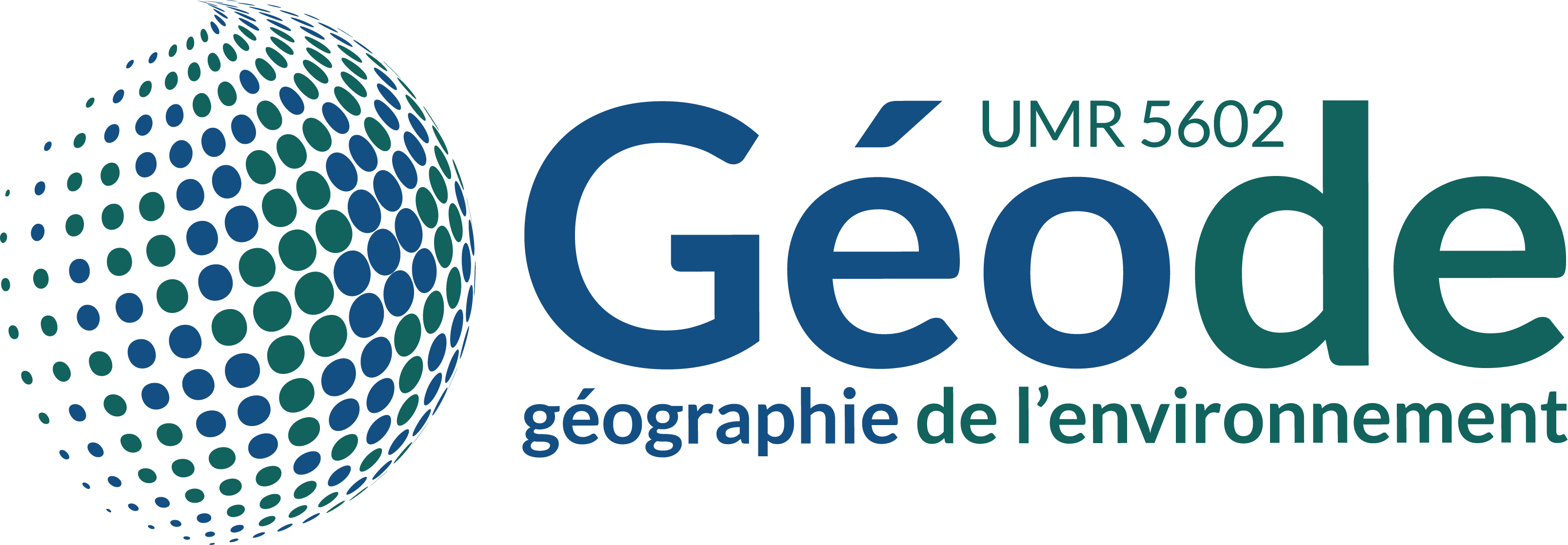-
Partager cette page
Axis 2: DESTER « Dynamiques et Enjeux Socio-environnementaux des TERritoires »
The theme ‘Socio-environmental Dynamics and Issues in Territories’ proposes to focus on contemporary socio-environmental issues. One of the challenges is to think about and understand the ways in which the environment, landscapes and territories are managed, transitioned and negotiated.
Its scientific activities will focus on three sub-themes:
Its scientific activities will focus on three sub-themes:
ST 1 : Conservation, restoration, heritage enhancement or development of environmental components and their spatial characterisation:
Whether we are talking about biodiversity - TVB, invasive plants, large predators, etc. - the reserve and quality of water resources, landscape heritage or more singular objects - peat bogs or river weirs, for example - current and future programmes will be careful to question and report on the processes of qualification or disqualification to which they are subject.
ST 2 : Linking resources and risks
In all socio-ecosystems, but more visible in sensitive and fragile areas, the ambiguities of responsibility for resources - water, land, housing, soil, etc. - encourage their degradation. While the focus used to be on quantitative aspects (for example, drought and flooding in the case of water), it is now shifting to more qualitative aspects: in the case of water and soil, we will be talking about contamination by various pollutants. These risks can be seen as chemical time bombs, but also social time bombs.
ST 3 : Appréhension d’objets environnementaux en tant que communs, partagés ou à re-partager
The question of common goods and what can be shared and make sense collectively concerns all areas, which multiplies the opportunities and also blurs the academic reference points, provided that they are somewhat stabilised.
The challenges are twofold: getting people to recognise that the management of these commons - e.g. pastoral and nocturnal commons - is necessary for the proper socio-environmental functioning of these areas, and getting local populations to recognise and accept that they have an obvious role to play in maintaining and improving the socio-environmental efficiency of the places where they live.
What exactly are we working on?
- Characterising the complexity of these interrelationships and the complex dynamics between society and territory over time, using surveys, archives, measurements and reconstructions that we will most often compare with the results of our research. ;
- Analysis of the qualification processes and the characterisations themselves : By qualification, we mean processes based on studies using data and measurements that can be the subject of discussion and negotiation concerning both the methods and the indicators considered. With consequences at legal and regulatory levels, these processes legitimise certain practices while calling others into question (agricultural, industrial, tourist or domestic practices). The issues of imperatives and urgency, in terms of resource management and the necessary changes, require an understanding of what is at stake in the diagnosis of the functioning of Socio-Ecological Systems.
- Highlighting conflicts, controversies or, at the very least, negotiations between players to which these qualification processes, of management and intervention.
Why is it necessary ?
To grasp and understand the dynamics associated with contemporary environmental and landscape issues requires an analysis of society-environment relations in their dual biophysical and social dimensions, seeing them as connected. The concept of SES - Socio-Ecological or Environmental Systems - can help to illustrate and question this.DESTER focuses on socio-environmental and landscape changes at different spatial and temporal scales. These changes are characterised by :
- Not a single human-environment interface is free from environmental change : and this, according to a range of declinations which extends: health problems related to pollution, artificialization, alteration of the functioning of the environments, degradation and banalization of the landscapes, losses of ecosystem services, contestations of territorial developments...
- These changes are accelerating and becoming more visible, affecting more areas, more people and more species, increasing both globally and locally.
Objectives:
Our ambition is to think about and understand the ways in which the environment, landscapes and territories are managed, transitioned and negotiated.How we do it ?
- Investigate these areas using specific investigative methods : These range from the short historical approach to prospective modelling, via critical geography, spatial data analysis and the social sciences sensu lato, as well as reflection on the methods and epistemology of the construction of these scientific objects and methods of investigation concerning them, between the operational and the fundamental, and between qualitative and quantitative approaches at the interface between environments and society.
- Formalising theoretical thinking : Share and compare points of view relating to the different theoretical and methodological approaches and tools used to understand current socio-environmental issues and their possible solutions.
Key words :
- Key words - Theoretical approaches :
Ecological systems. Socio-spatio-temporal modelling, quantitative and qualitative territorial and temporal analysis. Action research.
- Keywords - Concepts :
- Keywords - Methods :
Land:
- Southern Europe: South-West France: Pyrenees, Massif Central and Occitanie region, Spain, Romania, Montenegro.
- Latin America: Chile, Ecuador, French Guiana, Mexico.
- West and East Africa: Senegal, Côte d'Ivoire, Burkina Faso.
- Mediterranean: Lebanon, Tunisia, Morocco.
- Other countries: India, Vietnam.
Main members :
- Bernard Alet*
- Alexandra Angeliaume-Descamps*
- Frédérique Blanc****
- Rémi Bénos***
- Philippe Béringuier*
- Georges Bertrand*
- Frédérique Blot***
- Gérard Briane*
- Bertrand Desailly*
- Nicolas Gouix****
- Ruppert Vimal**
- Samuel Challeat**
- Martin Paegelow*
- Anne Peltier*
- Léa Sébastien*
Secondary members :
Doctoral students:
- L. Le Goff
- Alexis Jaoul
* MCF-PR et PREM Toulouse Jean-Jaurès University - ** DREM-CR- IR_IE_AI CNRS - *** MCF INU J.-F. Champollion, Albi - **** CEN Occitanie
